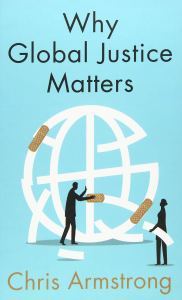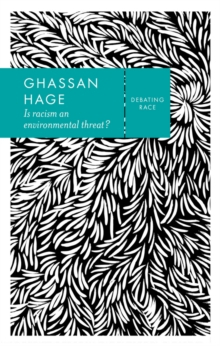Jeremy Williams's Blog, page 111
August 7, 2020
Ten thousand mini power stations for Wales
Britain has the oldest housing stock in Europe, and it is notoriously inefficient. Millions of people live in damp, poorly insulated properties, and there are multiple gains from improving them. Efficient homes would be healthier and more comfortable as well as cheaper to run and with lower carbon emissions. And yet, this obvious win-win climate solution seems to be neglected, year after year.
Mass retrofitting will have to be part of Britain’s plans to reach net zero carbon by 2050, but we’ll n...
August 6, 2020
Making it normal not to fly
For over a decade I have lived a mile from an international airport without using it, because I have decided not to fly unless absolutely necessary. I have a lot of conversations about this, and it seems that most people don’t really know about the impact of flying. The industry endlessly repeats the fact that its contribution to total global emissions is in the single figures – 2 to 5%, depending on who you ask.
That makes it sound like a minor thing, which is of course the reason why the indus...
August 4, 2020
Infographic: the trouble with bioplastic
A couple of weeks ago I posted an infographic from Surfrider Foundation Europe, all about plastic pollution and how recycling is only a limited solution. It got a good response, and so here is the second in their series. This time the subject is bioplastics, a slippery idea that also has very real limits to its usefulness.
Bioplastics and recycling should not be rejected out of hand, but neither of them can deal with the sheer scale of plastic pollution. There is no substitute for reducing our d...
August 3, 2020
Book review: Why Global Justice Matters, by Chris Armstrong
 I had a rather sad thought while reading Why Global Justice Matters. It occurred to me that I had read very similar books twenty years ago, outlining how aid, debt and trade are all tilted towards the global North. Poverty persists, inequality worsens, and the terms of globalisation remain firmly in favour of the richest.
I had a rather sad thought while reading Why Global Justice Matters. It occurred to me that I had read very similar books twenty years ago, outlining how aid, debt and trade are all tilted towards the global North. Poverty persists, inequality worsens, and the terms of globalisation remain firmly in favour of the richest.
The Doha Round of World Trade Organisation talks were supposed to address these issues. They started in 2001, got nowhere, and ultimately went quiet a few years later. With the...
August 1, 2020
What we learned this week
A few weeks back I wrote a post listing ten types of energy storage. If you want the same thing in a more detailed 36 page version and written by experts, download the Haynes manual for Electricity Storage, released by Renewable UK.
After some number-crunching, the insurer Direct Line has concluded that it is now cheaper to own an electric car than a petrol car in Britain. Adding in all relevant costs, taxes etc, electric cars save their owners an average of £107 a year.
I’m looking forward to r...
July 30, 2020
Madagascar and Britain: comparing two doughnuts
A bunch of new tools for creating and using Kate Raworth’s ‘doughnut economics’ have been released recently. The idea is now being applied in Amsterdam, as I reported last month. There’s a new guide to help other local authorities to use it where they are, and a new policy database from the Zoe Institute.
Two doughnuts at once is generally a bad idea, but as a reminder of how the doughnut can illuminate policy priorities, I thought a comparison might be helpful.
As you will know if you’ve read K...
July 29, 2020
Innovating for mangrove restoration
Mangroves are an important coastal plant. They prevent erosion and buffer coastlines against storm surges. Their dense submerged roots provide safe places for fish and shrimp and other creatures to breed. In an age of climate change and rising sea levels, they offer a form of ‘green infrastructure’ to help protect coastal communities.
Unfortunately, if you’re trying to develop a coastline for tourism or industry, then mangroves are impenetrable, inconvenient and mostly in the way. They get clear...
July 28, 2020
Video: Who is responsible for fixing climate change?
Responsiblility for climate change is an issue I’ve addressed in various ways on the blog over the years. Here’s one of the more accessible explanations I’ve come across: a video presentation from the YouTube science explainers Kurzgesagt. It looks at current and historic emissions, and how we balance the past and the present.
If you’re familiar with these debates, pass the video along to those who might not be. If you’re new to the argument, this is worth ten minutes of your time to help get cl...
July 27, 2020
Book review: Is Racism an Environmental Threat? by Ghassan Hage
 Last week I mentioned the shortage of books on race and the environment, and that I haven’t found many to draw on in the research for my book. One exception could be Is Racism an Environmental Threat? by the Lebanese-Australian anthropologist Ghassan Hage.
Last week I mentioned the shortage of books on race and the environment, and that I haven’t found many to draw on in the research for my book. One exception could be Is Racism an Environmental Threat? by the Lebanese-Australian anthropologist Ghassan Hage.
It’s a relatively short book with a straightforward title, but do not be fooled. This is a highly academic exercise in social theory, with its roots in the the French scholarship of Bourdieu, Foucault and Derrida and that only occasionally tou...
July 25, 2020
What we learned this week
Baseline looks like a really interesting film project. Film-maker John Sutter will visit four locations every five years from now until 2050, documenting the change.
I recommended Ibram X Kendi’s book How to be An Antiracist this week. Here’s a presentation and discussion with the author on the difference between being ‘not racist’ and ‘anti-racist’.
The Thames has very high levels of micro-plastic pollution, according to a study comparing plastic across rivers in Europe. It’s a shame plastic do...



